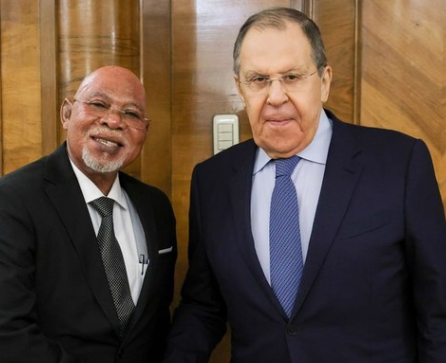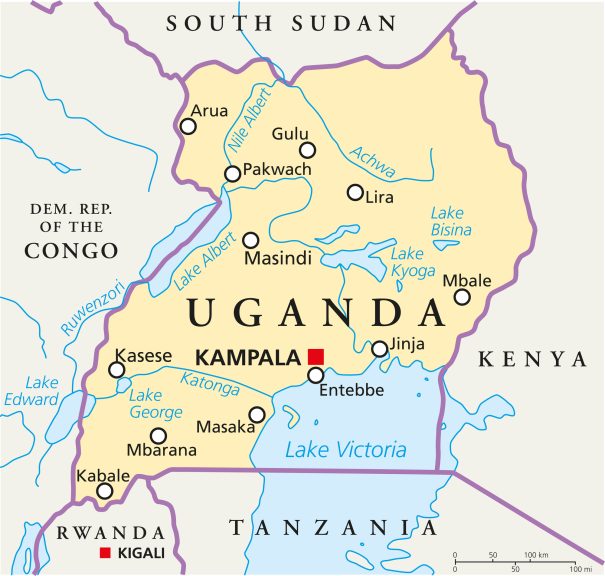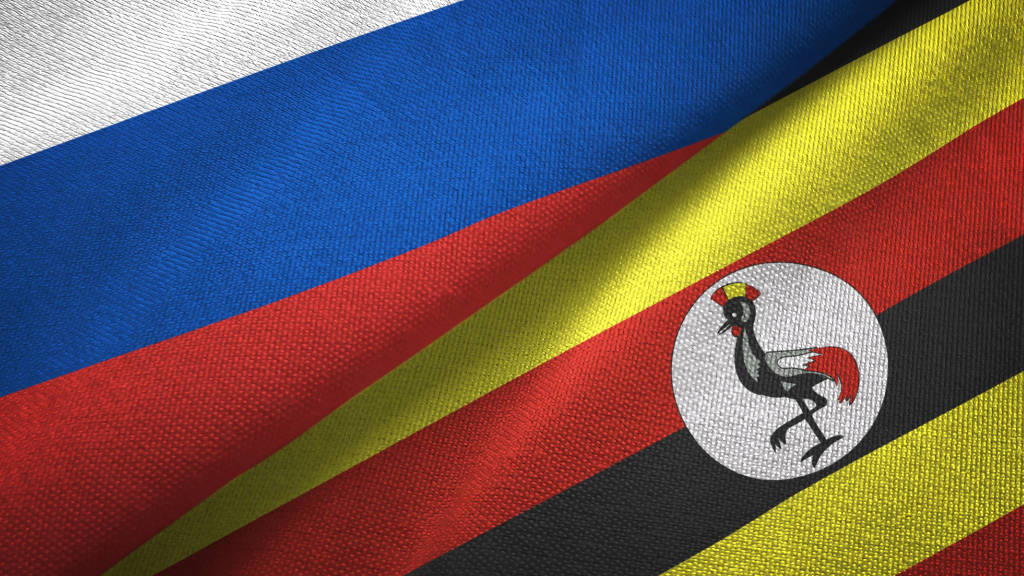The Russian Foreign Minister Sergey Lavrov has met with his Ugandan counterpart, Jeje Odongo, in Moscow. Lavrov stated, “We welcome Uganda as a BRICS partner country, and look forward to active cooperation with our Ugandan friends in this new format.” Uganda became a BRICS partner in January this year.
Lavrov and Odongo discussed a broad range of issues related to bilateral cooperation. Particular emphasis was placed on trade, investment, energy, agriculture, science, high technology, and healthcare. Both sides reaffirmed their intention to deepen political dialogue.

Odongo was part of a high-level delegation led by Vice President Jessica Alupo, who also held talks with Russian Federation Council Chairperson Valentina Matviyenko.
Matviyenko described Uganda as one of “Russia’s key partners on the African continent.” She noted that the partnership reflects a shared commitment to advancing mutually beneficial cooperation across diverse sectors. Alupo also addressed the 592nd plenary session of the Russian Federation Council. She said that “While others promoted only manipulation and exploited our people, Russia provided assistance and solidarity. Russia and Africa have become dear friends to each other. Africa has always welcomed Russia in economic, political, and cultural terms. This partnership, based on equality and mutual understanding, will help Africa achieve its main goal of sustainable development.”
On Tuesday (June 17), Alepo also met with Russia’s special presidential envoy for the Middle East and Africa, Mikhail Bogdanov. The talks focused on expanding bilateral cooperation ahead of the upcoming session of the Intergovernmental Russian-Ugandan Commission on Trade and Economic Cooperation.

Uganda is known for its rich natural resources and agricultural sector, which plays a pivotal role in its economy. This is characterized by a significant reliance on agriculture, which contributes about 24.2% of its GDP. This includes activities like crop production, animal husbandry, fisheries, and dairy farming. Additionally, the industrial sector, including manufacturing, construction, and electricity generation, makes up 25.5% of the GDP, with key industries such as sugar processing, brewing, tobacco, cotton textiles, cement, and steel production.
The services sector, which accounts for around 50.3% of the GDP, includes wholesale and retail trade, telecommunications, hotels and restaurants, transport, communications, and tourism. In recent years, Uganda has prioritized diversifying its economy by focusing on agro-industrialization, mineral extraction, oil and gas development, and science and technology. Infrastructure projects such as the construction of a 1,443 km heated oil pipeline through Tanzania are expected to boost oil production and export capacity. The country is also investing in expanding its energy infrastructure, with plans to add over 1,600 megawatts of hydroelectric capacity to meet the growing energy demands.
Uganda is actively participating in several regional and international trade agreements that help enhance its economic position. As a member of the East African Community (EAC), Uganda benefits from a common market and customs union that reduces tariffs and trade barriers between member countries. Uganda is also part of the Common Market for Eastern and Southern Africa (COMESA), a regional bloc focused on economic integration and liberalized trade.
Uganda is also a signatory to the African Continental Free Trade Area (AfCFTA), which aims to create a single continental market for goods and services, boosting intra-African trade.
Uganda has a population of 51.4 million, and has a GDP (PPP) of about US$186.661 billion. According to forecasts by Trading Economics, GDP per capita (PPP) will reach US$3,028 by the end of 2025. The projected growth rate for 2025 is expected to be 8.5%, increasing to 10% in 2026.
Bilateral trade relations between Uganda and Russia are developing, with current bilateral trade volumes at about US$500 million. Uganda imports goods worth approximately US$202 million from Russia, including wheat and meslin, chemical industry products, petroleum products, rolled metal, medical preparations and so on.
Uganda’s main export goods to Russia are coffee, cocoa, cashews, tea, spices, and tobacco. According to Uganda’s ambassador to Moscow, Moses Kawaaluu Kizige, the country is increasing its exports of coffee and cocoa to Russia and expects to significantly increase its exports by this year end.
Further Reading

 Русский
Русский














